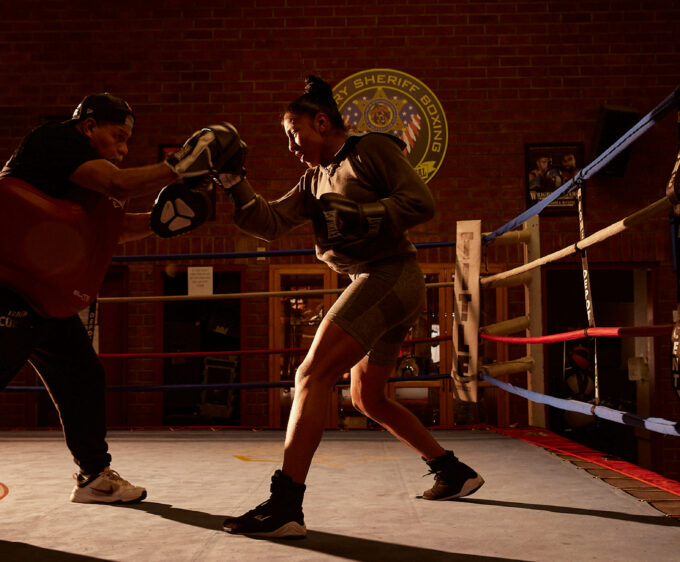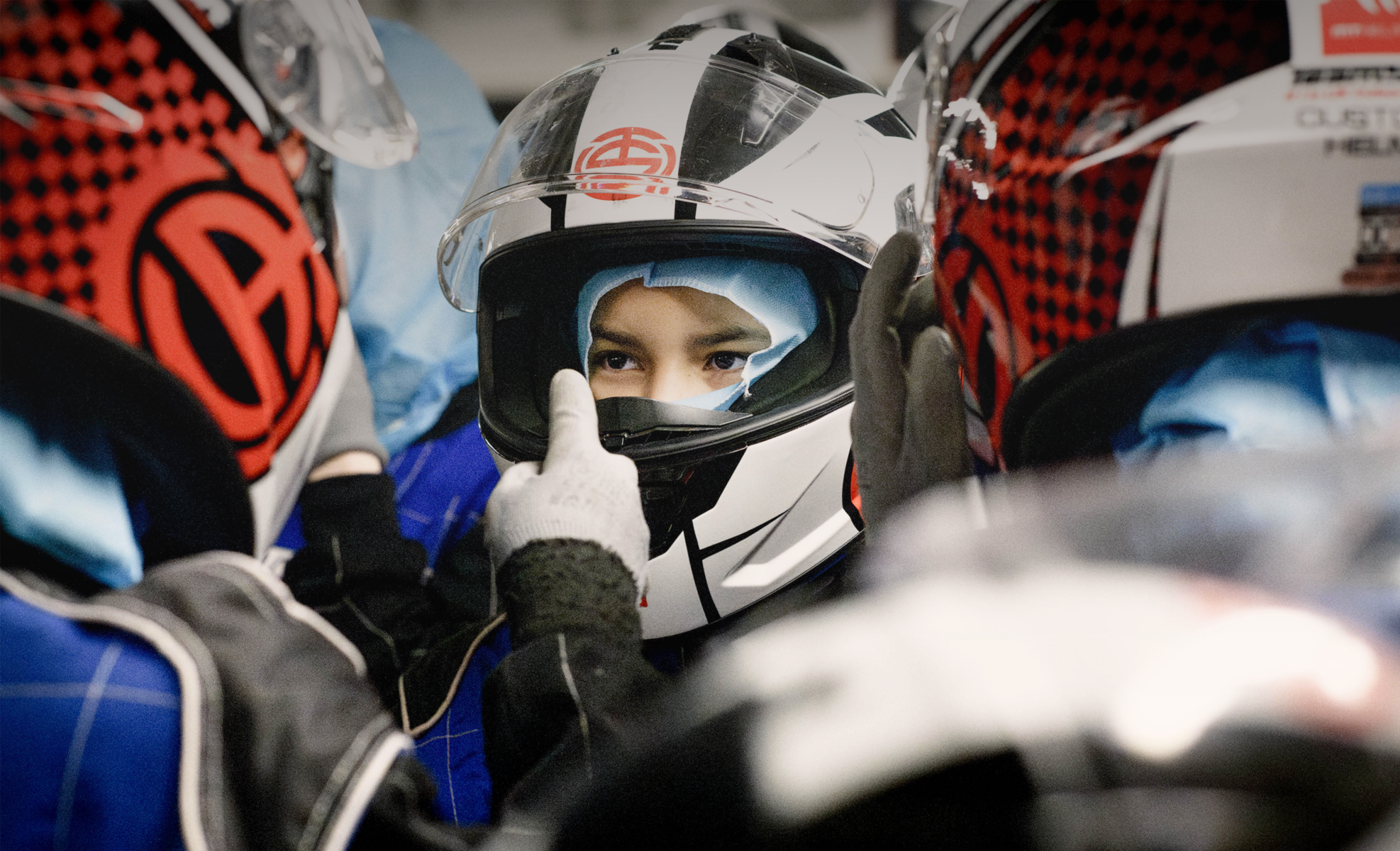
Adrenaline: Girls On Track
Breaking gender barriers, Jenny Fletcher races into the realm of motorsport, empowering girls to shatter stereotypes and embrace their passions through the revolutionary Girls on Track programme
By Glorious
Photography by Karen Yeomans
Jenny Fletcher shares her inspiring journey into the adrenaline-fuelled world of motorsport and how she is dedicated to inspiring and encouraging girls to pursue motorsport as a career or hobby. Jenny is Programme Manager for Motorsport UK’s Girls on Track, and we chat to her about how the programme’s engaging activities and challenges are helping girls to develop confidence, discover new possibilities, and break free from traditional gender stereotypes, allowing them to thrive within the vibrant and supportive Girls on Track community.
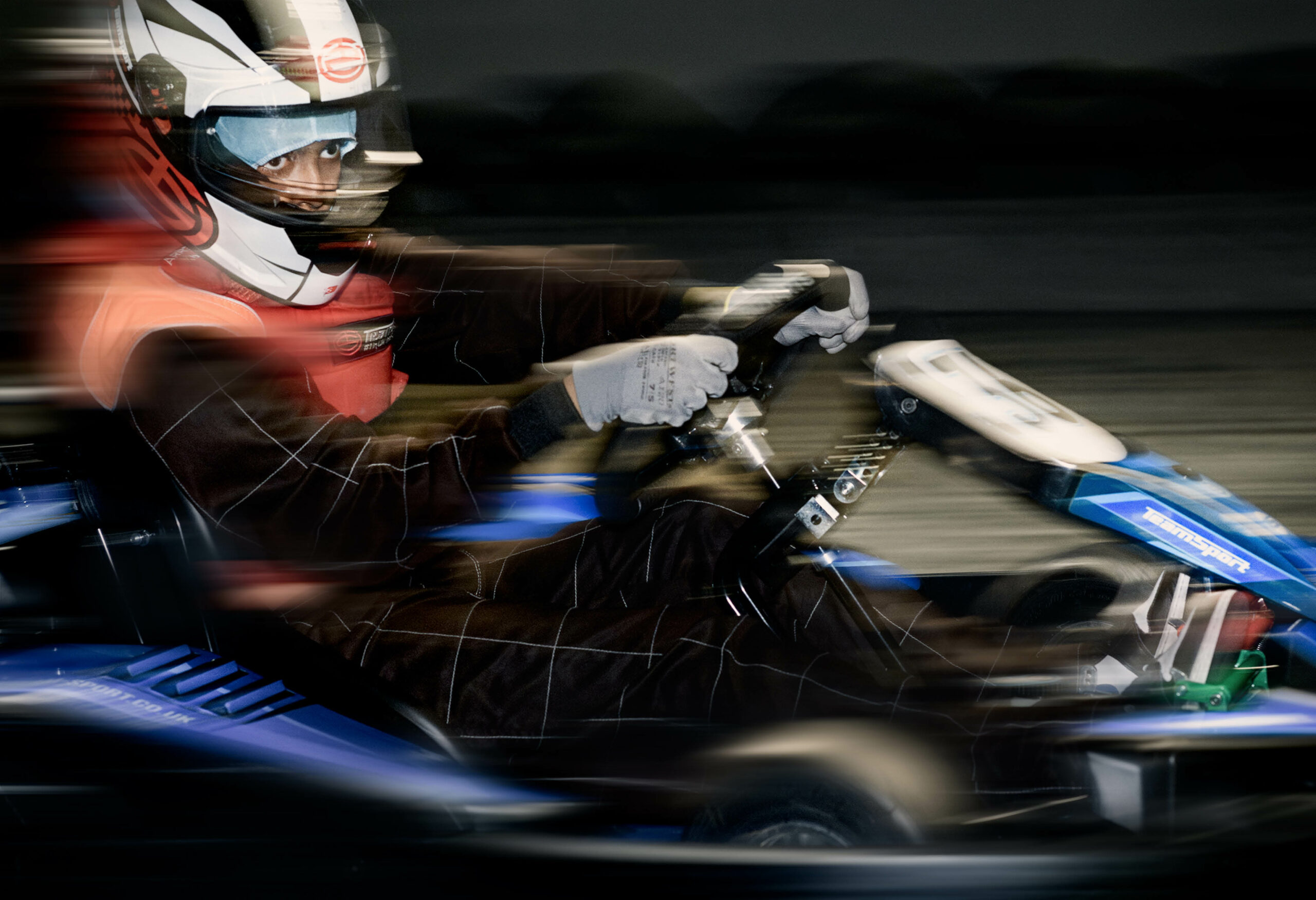
Glorious: What led you to your current role in motorsport and wanting to inspire young girls into the industry?
Jenny Fletcher: I was a primary school teacher for 10 years and had a passion for motorsport, which I got through my stepdad. I loved teaching and working with students, but I became disheartened with the constant focus on government targets and the lack of individuality. I wanted something different but didn’t have any qualifications other than being a teacher. Then I came across an article about Susie Wolff starting the Dare to be Different charity, aiming to inspire girls in motorsport. I reached out to her and shared my teaching experience and my passion for motorsport. I didn’t expect to hear back, but Claudia, who worked with Susie, contacted me and we arranged a meeting. I ended up sitting down with Susie for about half an hour at the Autosport show in 2016, where she was launching the programme and shared my work and ideas. She offered me the opportunity to run the programme, and I accepted it, despite the challenges and uncertainties. I left my teaching job and haven’t looked back since. It was a challenging time, but it was worth it.
Glorious: It’s clear that it was a rewarding decision. How did your current role with Motorsport UK come about?
Jenny Fletcher: Well, it happened differently than I expected. In 2020, Susie was more involved with the Venturi Formula E team, and the FIA had started their own girls on track program focused on driving. They invited girls from seven European countries to participate in karting events, and the winners received funding for racing. I organised the UK round of this event at Silverstone, where we showcased a range of job roles in motorsport. The FIA saw the potential to do more than just driving and approached Susie about expanding the program. That’s how it became Girls on Track, and I manage it for the UK. Similar programs are now happening in Australia, Germany, and Costa Rica. The ultimate goal is for this programme to be adopted by other governing bodies worldwide and delivered to girls everywhere.
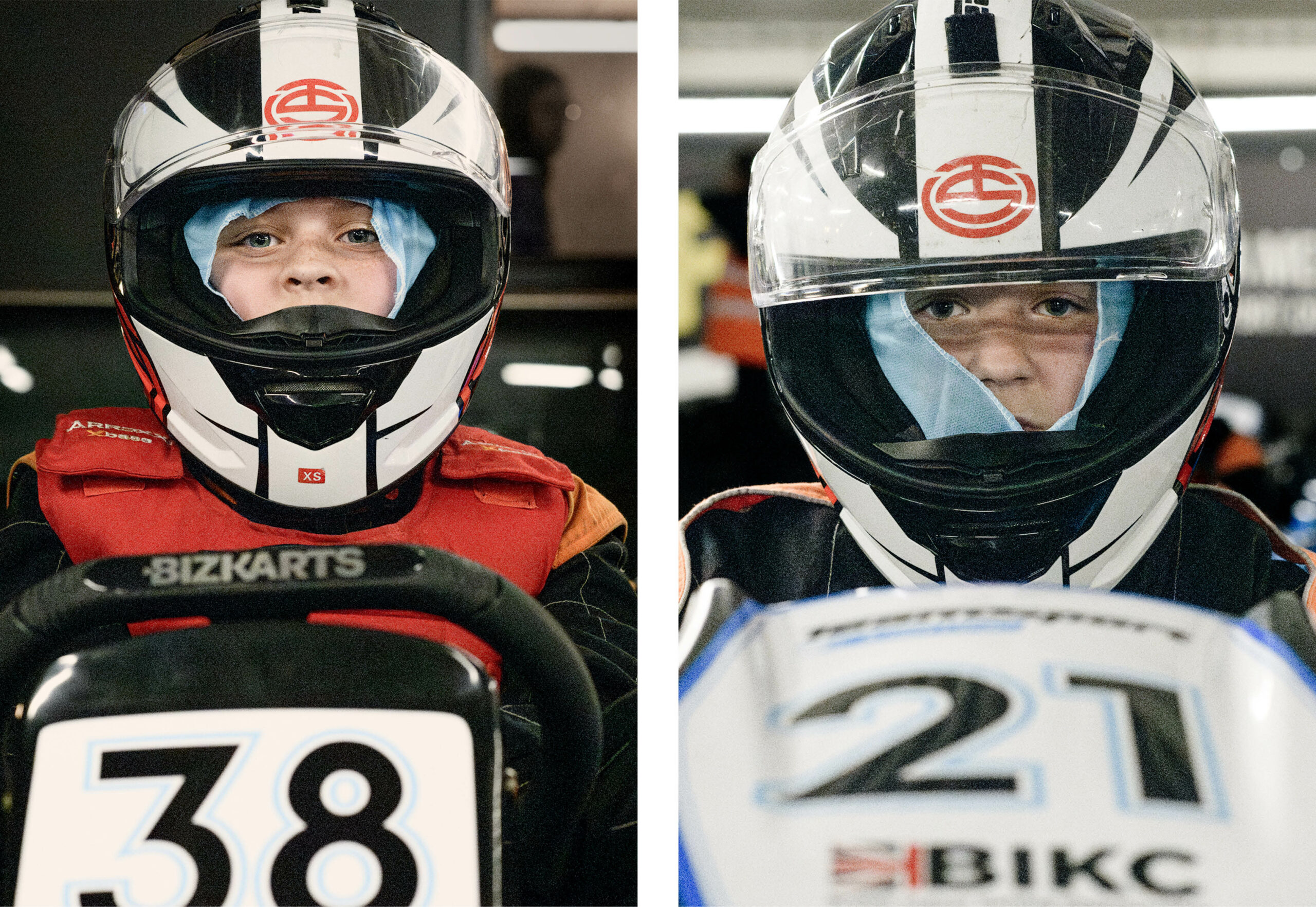
Glorious: How do you believe this programme benefits the personal growth of girls involved?
Jenny Fletcher: We often get asked why it’s focused on girls and why we exclude boys. The reality is that there is a significant gender disparity in motorsport and STEM roles. To address this, we need to start at the grassroots level by encouraging more girls to get involved. During our events, which typically have around 100 girls from local primary schools, we see them initially unsure and unaware of motorsport. However, as the day progresses and they engage in various challenges representing different job roles, their confidence grows. The all-female environment eliminates traditional gender stereotypes, allowing them to try new things without fear of judgment. The programme exposes them to the sport and the range of job opportunities available, which is invaluable. We often hear girls say they didn’t realise girls could build things or change a tire because they haven’t seen it before. By showcasing female role models and providing a supportive environment, we help them gain confidence and believe that they have a rightful place in motorsport.
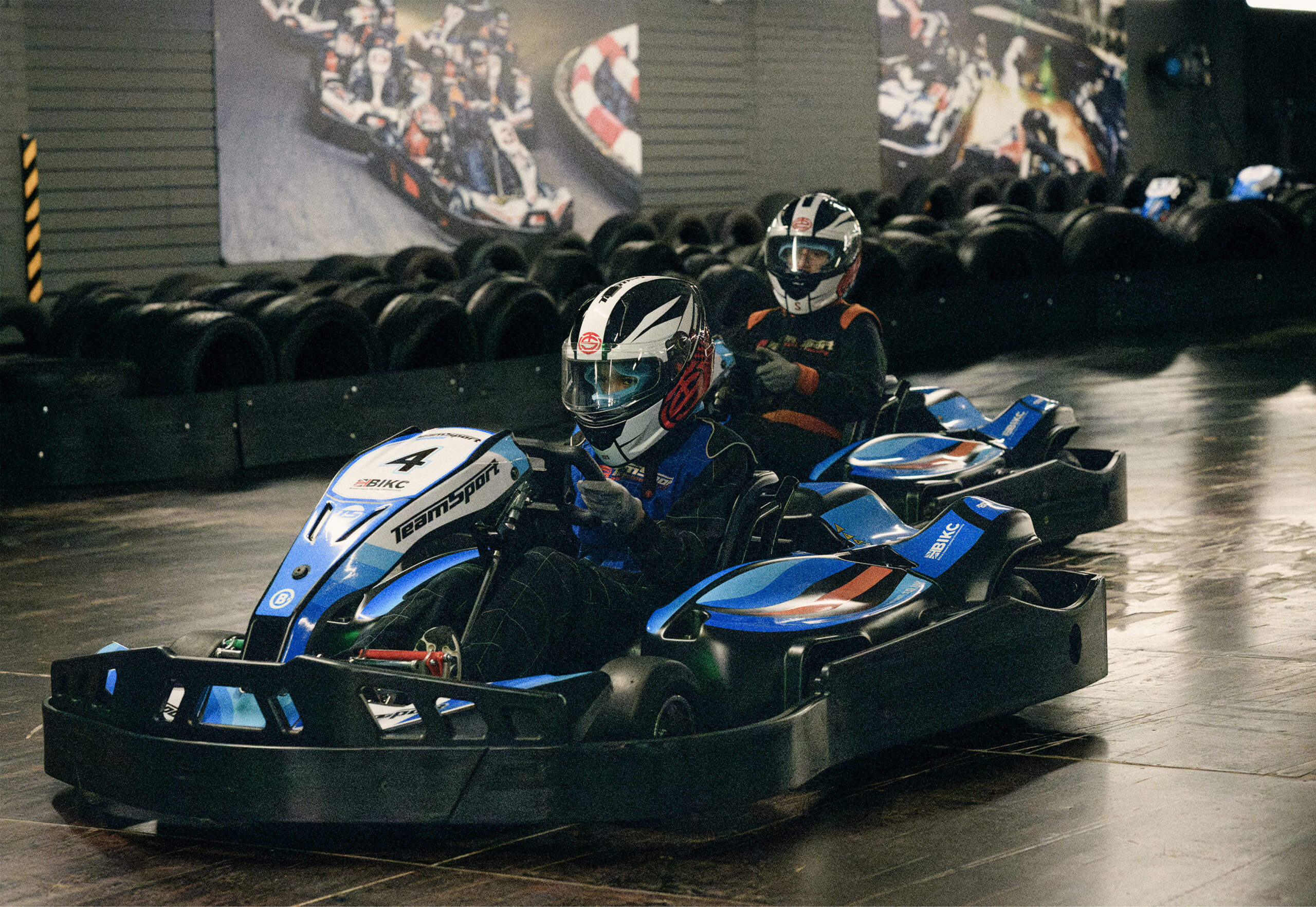
Glorious: What do you think are the common misconceptions or barriers that young girls face when entering this world of motorsport?
Jenny Fletcher: We’re actually very lucky in August 2022. So last year, we received a year’s grant from the Ignite Partnership. The Ignite Partnership is part funded by Lewis Hamilton and Mercedes Formula One team. The grant was intended to address three key aspects: the success of Girls on Track primary, research on barriers faced by girls, and the development of a pilot programme called Race for Diversity. We conducted events for different age groups, including years 7 to 9 and 14-year-olds from diverse backgrounds. We also conducted research in inner-city London and Manchester and found that the students’ knowledge about motorsport was extremely limited due to the lack of access and exposure to the sport. They were also unaware of the various job roles in motorsport beyond driving. Safety was a major concern for them, as their only exposure to motorsport was through social media, where crashes are often highlighted. Additionally, motorsport is perceived as exclusive and expensive, making it inaccessible to many. In response, we now provide pre-event materials to schools, introducing motorsport and its job roles. We also offer activities like track walks and educational videos to address these misconceptions and barriers.
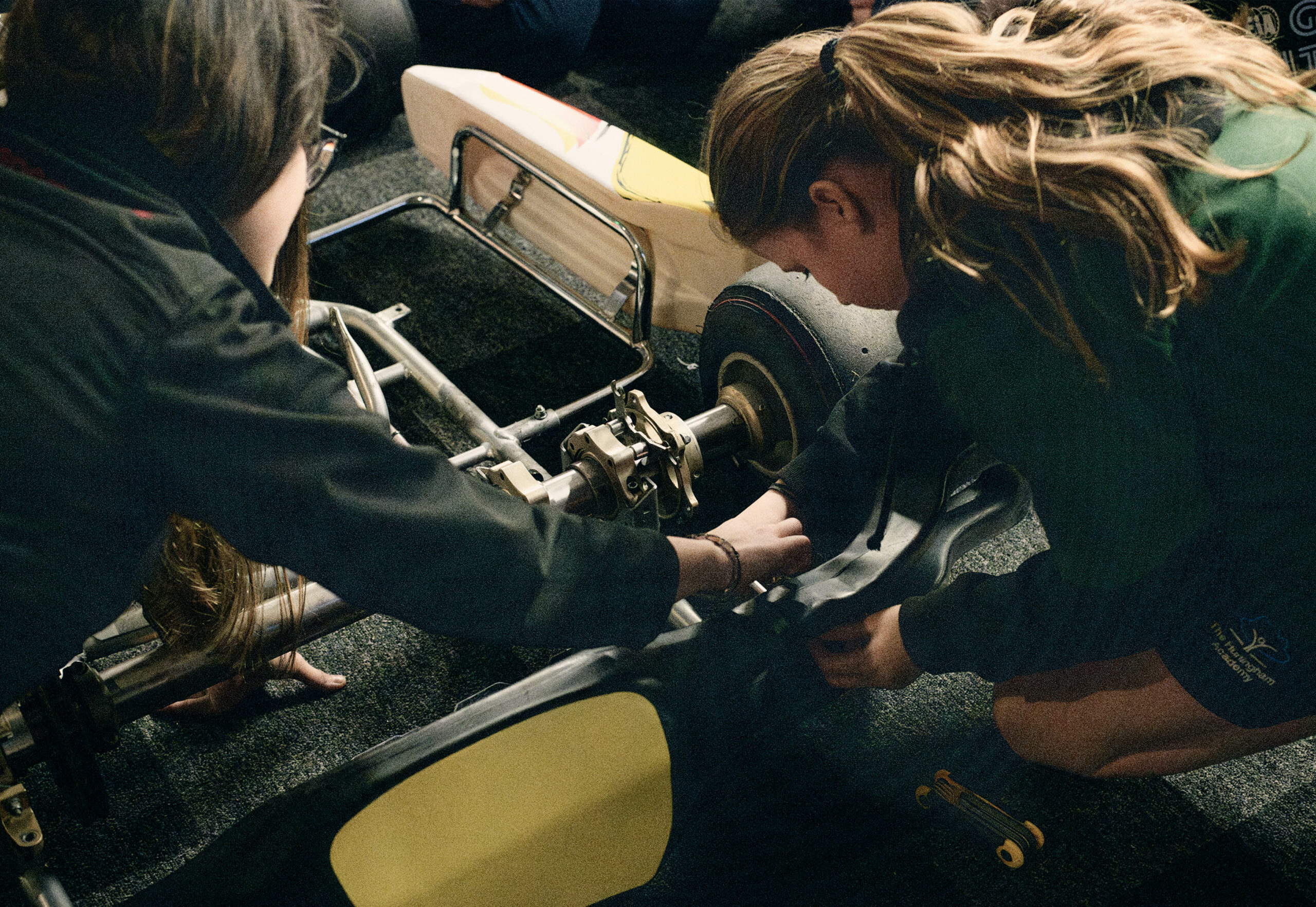
Glorious: That’s really useful feedback. How are you using this data to help address these barriers to entry?
Jenny Fletcher: We have taken the feedback on board and implemented several strategies. As I mentioned, we now provide pre-event materials to schools, giving students a basic understanding of motorsport and job roles. During the events, we ensure that there is a rotation of activities so that all participants have the opportunity to engage with different aspects of motorsport. For example, we have someone take them on a track walk to explain safety measures and introduce them to the marshals. This helps alleviate their concerns about safety. We also use role models, particularly women working in STEM-based roles in motorsport, to showcase the different job opportunities available. The students watch videos featuring these role models and then create their own videos to teach others about the role models. The feedback from these initiatives has been positive, with students expressing increased knowledge and understanding of motorsport and its career possibilities.
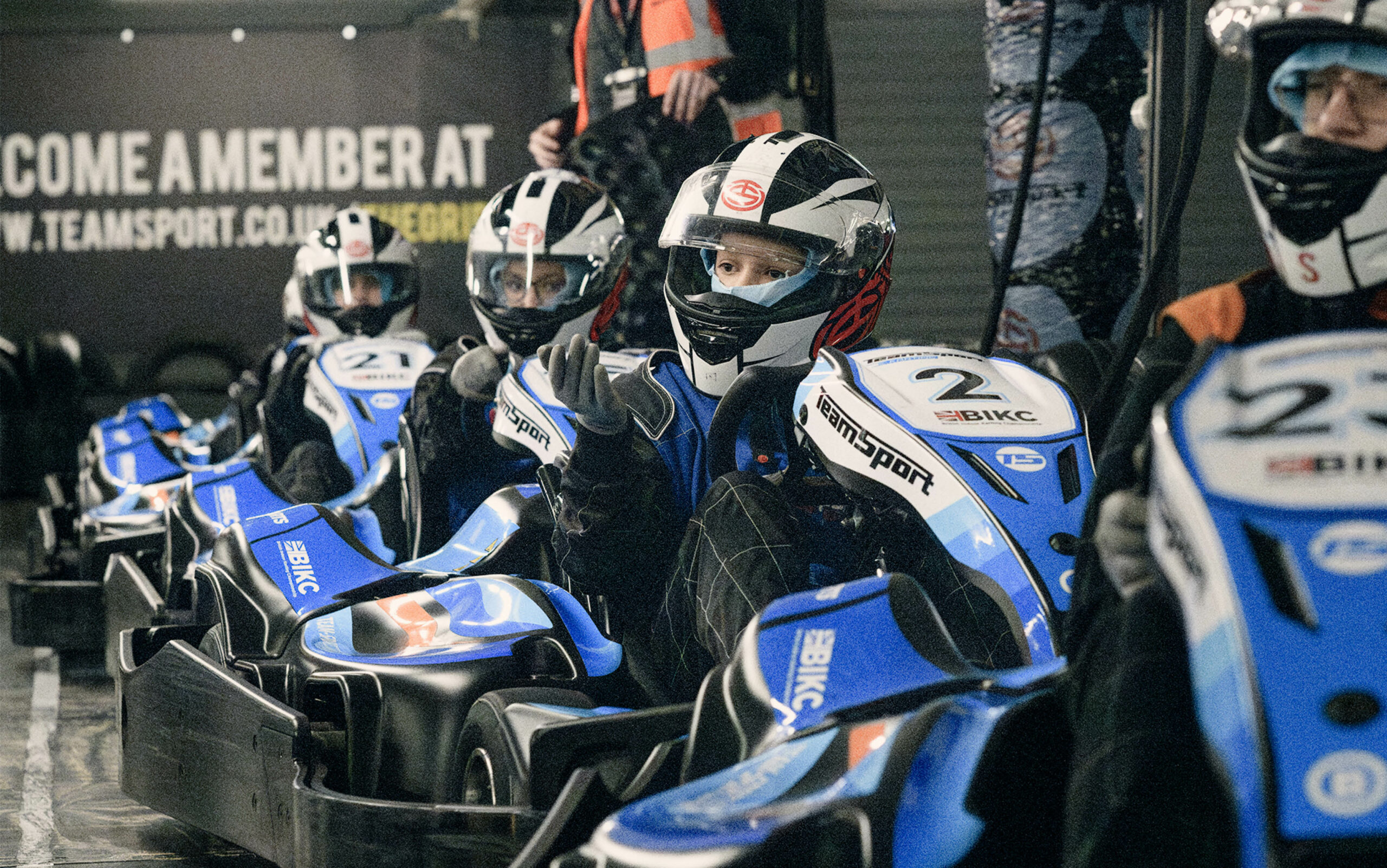
ADRENALINE
Glorious: Have you noticed any specific challenges in motorsport that are unique to young girls?
Jenny Fletcher: Confidence is the biggest challenge we’ve observed among young girls. Interestingly, we have noticed that confidence issues tend to worsen as girls enter secondary school. To address this, we keep the groups smaller during our secondary school pilots, as it allows for a more comfortable and supportive environment. Sometimes, girls may appear less engaged or hesitant to ask questions during larger sessions, but when you speak to them individually, you realise they have indeed learned a lot. Confidence is a major hurdle for them, but through our programs, we aim to boost their confidence and help them realise their potential.
Glorious: Once these girls have the confidence to go karting, what is the feedback?
Jenny Fletcher: The girls love the experience of karting. They enjoy the thrill of overtaking and the adrenaline rush. Before they go karting, we address their nervousness and explain that it’s the adrenaline that makes it exciting. After they try it, they feel a sense of accomplishment and realise they are capable of doing something they didn’t think they could before. Karting allows them to step out of their comfort zone and provides a truly exciting experience.
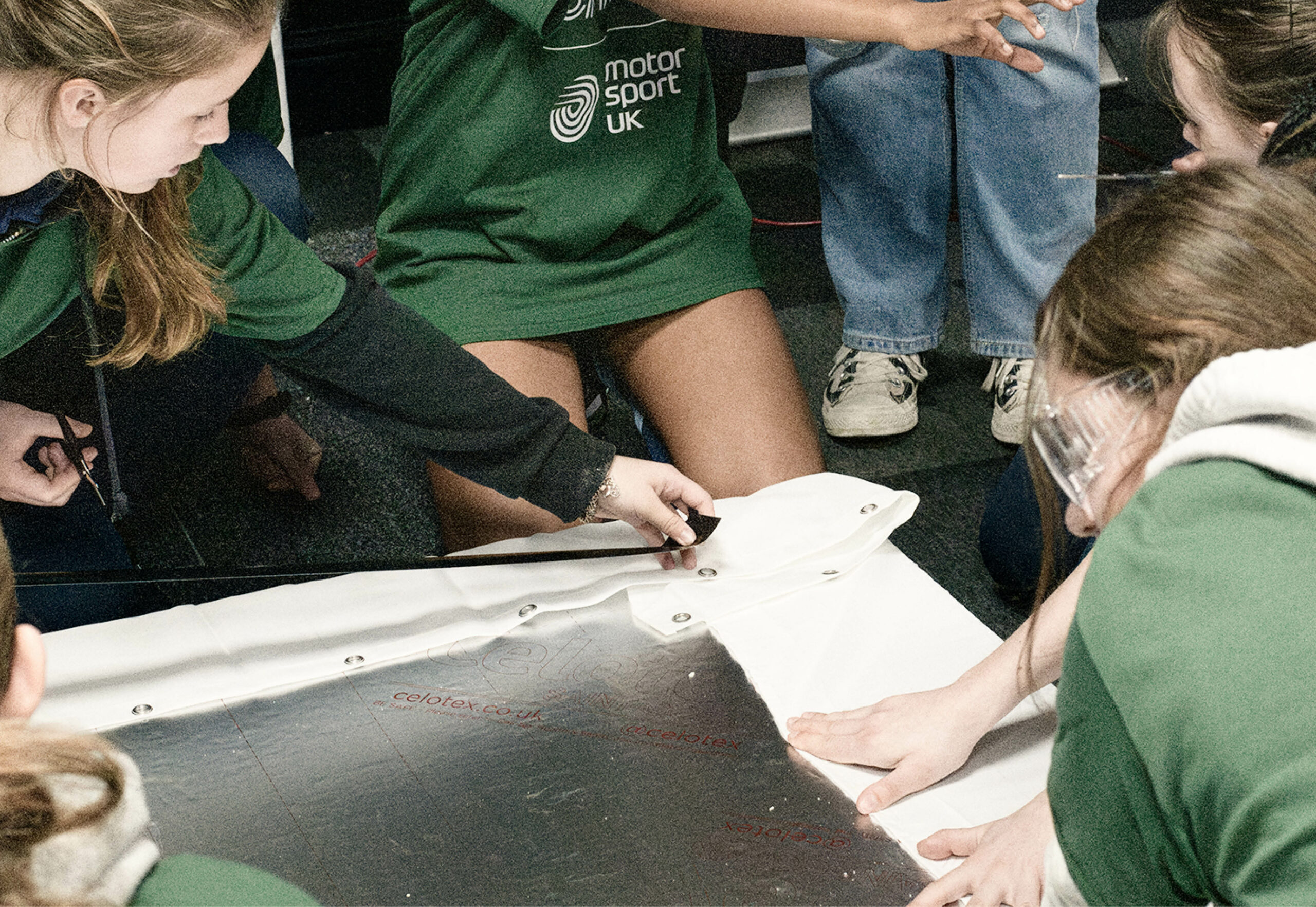
Glorious: Do you think there’s enough being done within the industry to encourage girls into motorsport?
Jenny Fletcher: I think it’s definitely improved, particularly in the last few years, with initiatives like the F1 Academy, which aims to get more girls into Formula 1. There’s also an exciting new grassroots partnership between Motorsport UK, F1 and TeamSport called Discover Your Drive Karting UK. It offers girls and young women the opportunity to participate in entry-level programmes that promote and enhance female participation. Motorsport UK is leading the delivery of this programme, which identifies talented girls aged 8-12 in the UK who show potential in karting and supports them on their journey within the sport. The goal is to nurture more talent and encourage them to compete in the British Indoor Karting Championships. The plan is for them to then progress to outdoor karting and eventually single-seater racing, with the hope of reaching Formula 1. It’s a long-term project that will take time, but we are definitely seeing a difference.
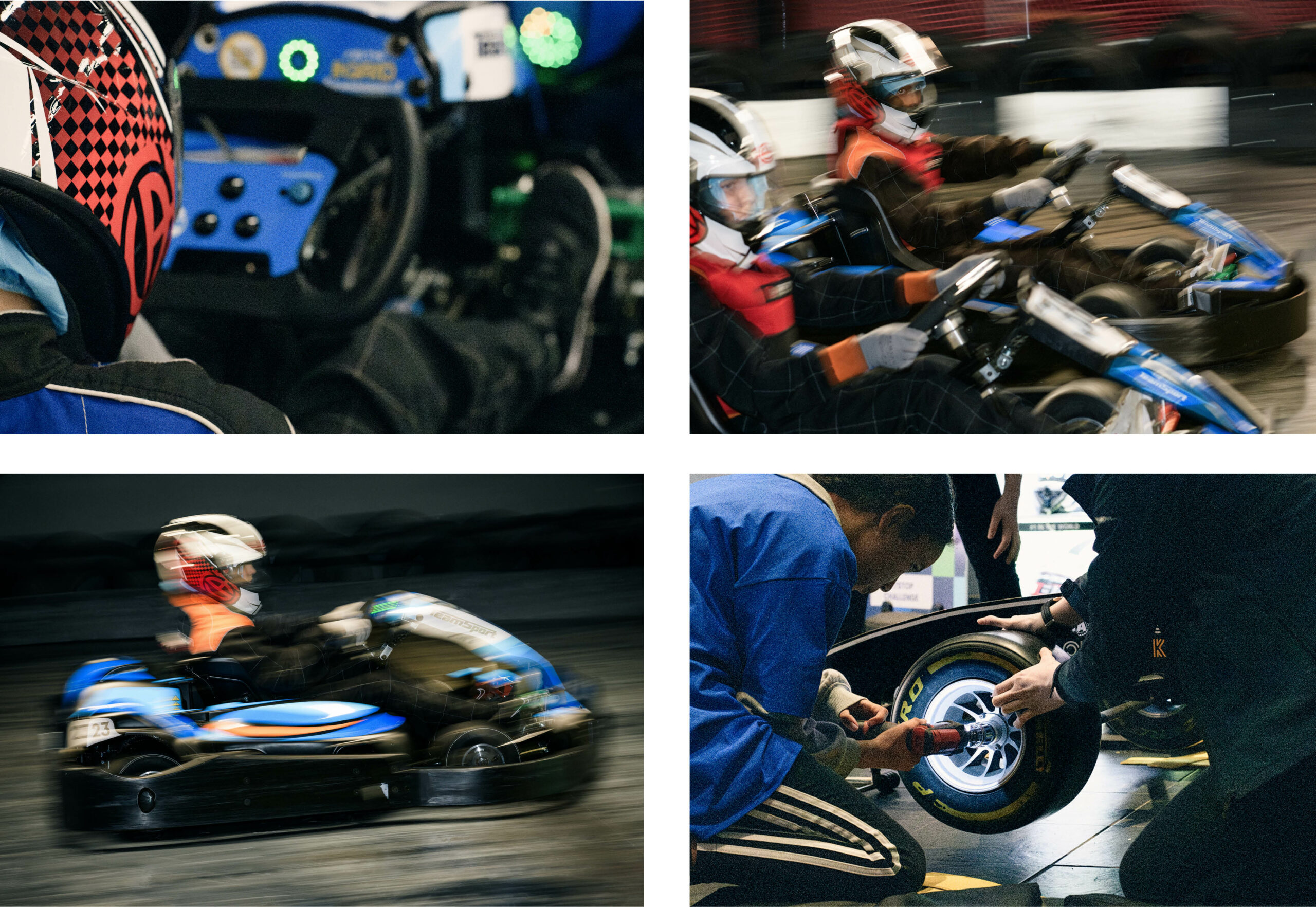
COMMUNITY
Glorious: Tell us about the Girls on Track community and how it operates.
Jenny Fletcher: We have over 7,000 members in the closed Girls on Track Facebook group, which is fantastic for making connections. People ask questions, share job adverts, and it really serves as a support network for females of all ages. The largest group within our community is probably the 16 to 24-year-olds who are interested in studying engineering, pursuing college apprenticeships, or becoming mechanics. It’s great to see the support they give each other. We also organise bimonthly webinars on different themes. For example, we recently had female journalists talk about written journalism in motorsport.
This month, as part of International Women in Engineering Day, we have an event at Cosworth where girls can visit the engine plant. We also have webinars with different women working in the sport. Additionally, we host live networking events a couple of times a year. One of them took place at Williams Formula One Team in April, where members can meet new friends, get inspired, and attend panel discussions. The feedback is always positive, and many opportunities and connections have emerged from these events. One success story is Ariana Bravo, who attended one of our events in 2019. She started a podcast called “Driven by Diversity” with another girl she met there, and she has now become an F1 presenter. The support and opportunities provided by the Girls on Track community have played a significant role in her success.
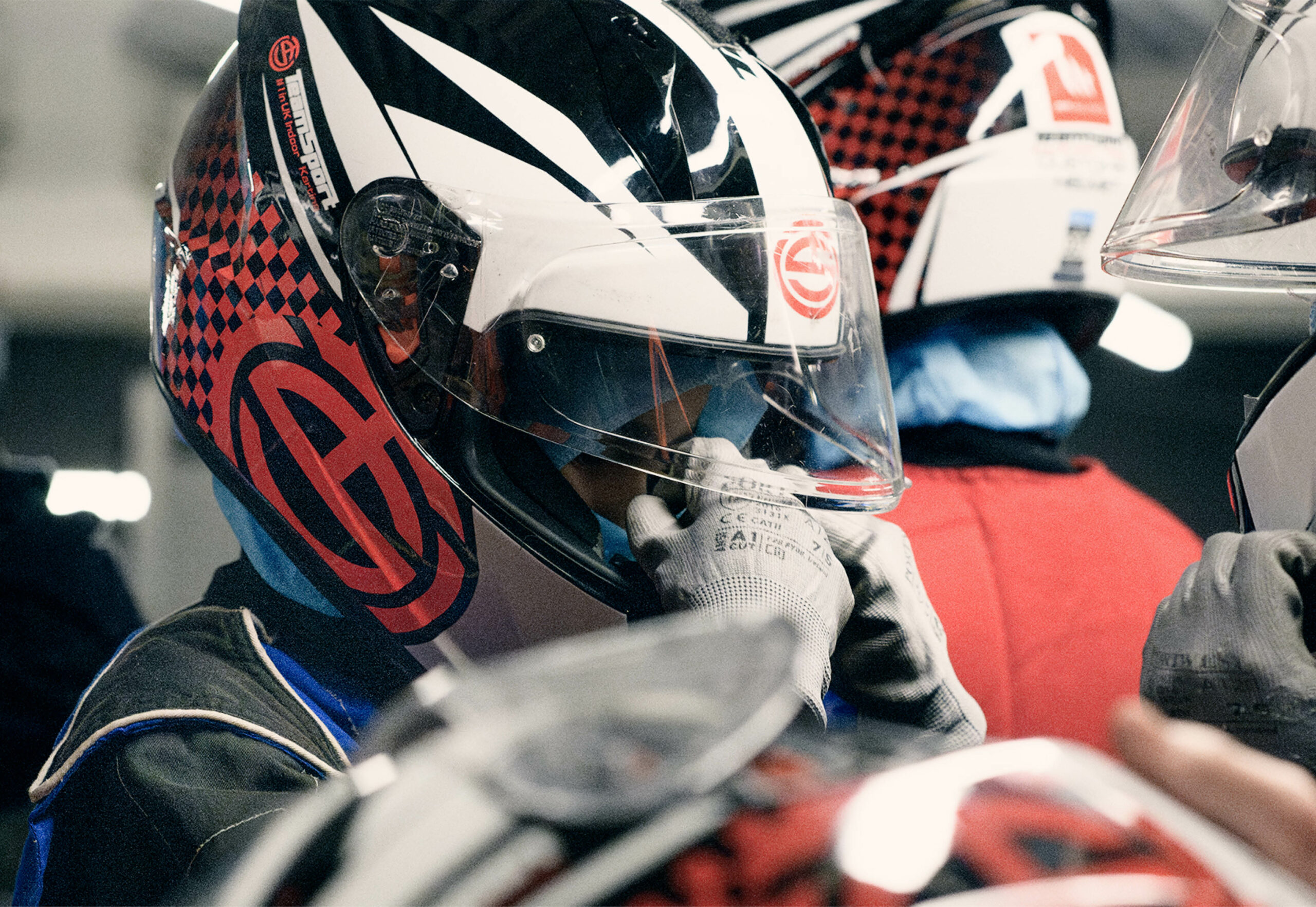
Glorious: That’s amazing! Can you share another success story?
Jenny Tcherniak: There are many, but one notable success story is Chloe Grant, one of the F1 Academy drivers. Chloe participated in one of our Dare to be Different days in 2016 when she was just 12 years old. She got involved in karting and attended the event the following year as a racing role model to inspire younger girls. She continued to stay engaged, volunteering for us and becoming an ambassador for Girls on Track. Now, at the age of 17, she is part of the F1 Academy, which is a dream come true. We’ve developed a close friendship with her and her family because they appreciate the opportunities we’ve provided. Chloe even had the chance to drive an Extreme E car with Chris Hoy on a challenging circuit. Her journey from a 12-year-old participant to an F1 Academy driver is truly inspiring.
Glorious: What advice would you give to young girls facing setbacks or obstacles while pursuing a career in the motorsport industry?
Jenny Fletcher: The motorsport industry is challenging to enter, and many girls aspire to work in Formula 1. However, I would advise them not to focus solely on F1 as the starting point. Volunteering is crucial, so they should look for opportunities in their local area, even at a grassroots level like karting or local circuits. By volunteering, they can learn a lot, ask questions, and offer assistance in various tasks. Shadowing someone experienced is invaluable. They should start at the grassroots level and work their way up. Perseverance is essential because setbacks and rejections are inevitable. It’s important to be persistent but not pushy when reaching out to people. Even though they may receive many “no” responses, it only takes one “yes” to make a difference. Believing in oneself, utilising the support of communities like Girls on Track, and being passionate about their goals will help them overcome obstacles.
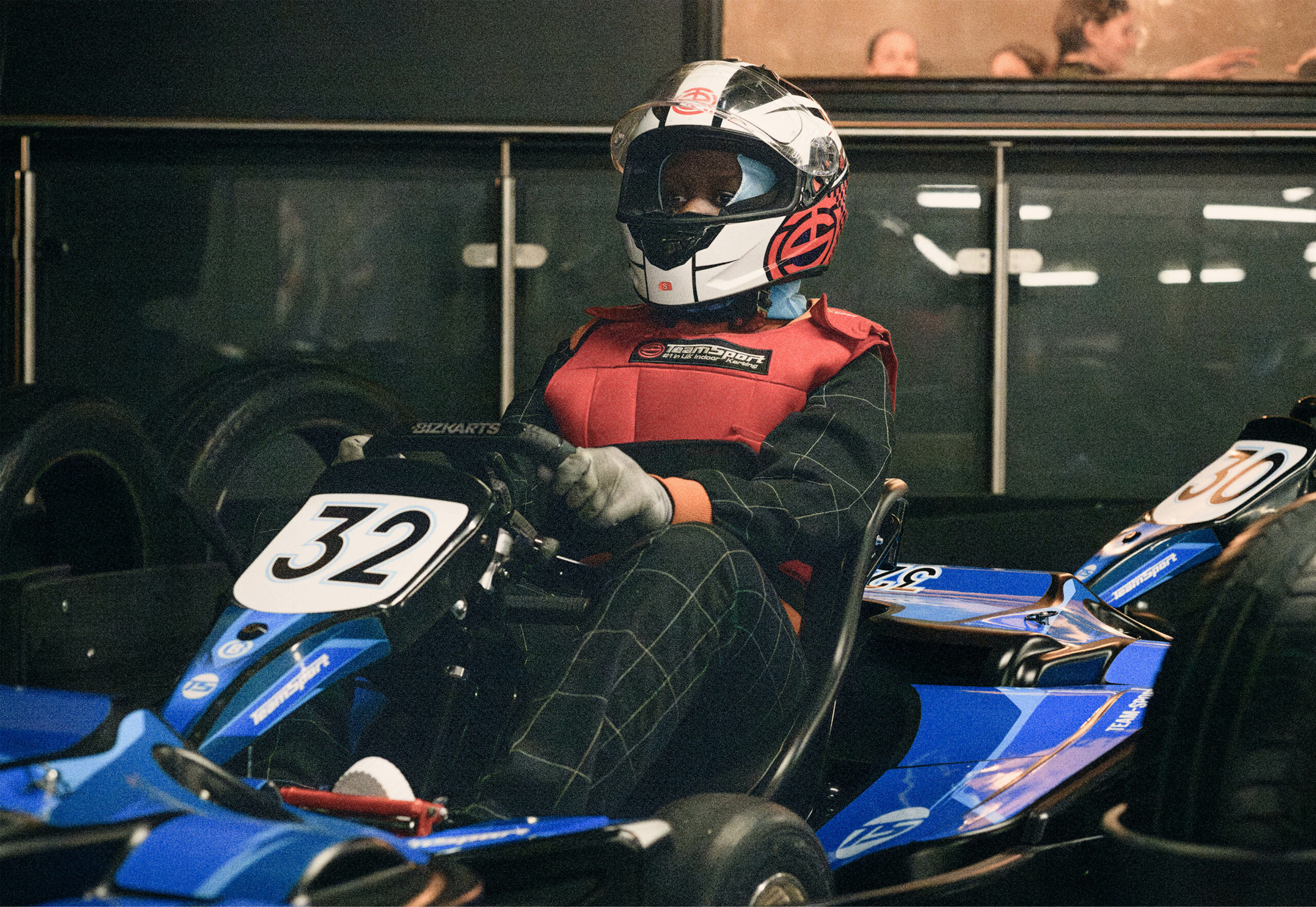
Glorious: That’s great advice. Do you have any additional tips for girls who want to pursue a career as a driver?
Jenny Fletcher: It’s important to acknowledge that motorsport can be expensive, so having financial resources is necessary. As they progress to higher levels, they may need to seek sponsorship to cover the costs. In terms of being a female driver, many have shared that once the visor is down, they are treated the same as any other driver on the track. Boys in the sport are often supportive. However, as with any field, there may be individuals who are unpleasant. Building resilience is crucial. If becoming a driver is their dream, they should believe in themselves, find a way to make it happen, and not let setbacks deter them.
Glorious: What are your long-term goals for Girls on Track?
Jenny Fletcher: We are currently at an exciting stage with the Ignite Partnership. Next year, I envision a balance between primary events and secondary events. We had a successful school event last year at UCL in London, where we hosted a daytime session for students and an evening meet and greet for aspiring engineering students. It was well-received and helped affirm their career aspirations. This year, we plan to organise a few more of those events. Additionally, under the branding of Motorsport UK, I created two modules for a school education program, one focusing on British Touring Cars and the other on single-seater racing. These modules are available for free download on our website and can be delivered by teachers to both girls and boys. We will continue to develop similar modules, possibly with a rallying theme. While planning these initiatives was challenging due to the pandemic, they have been worthwhile endeavours, and we’ll keep moving forward.
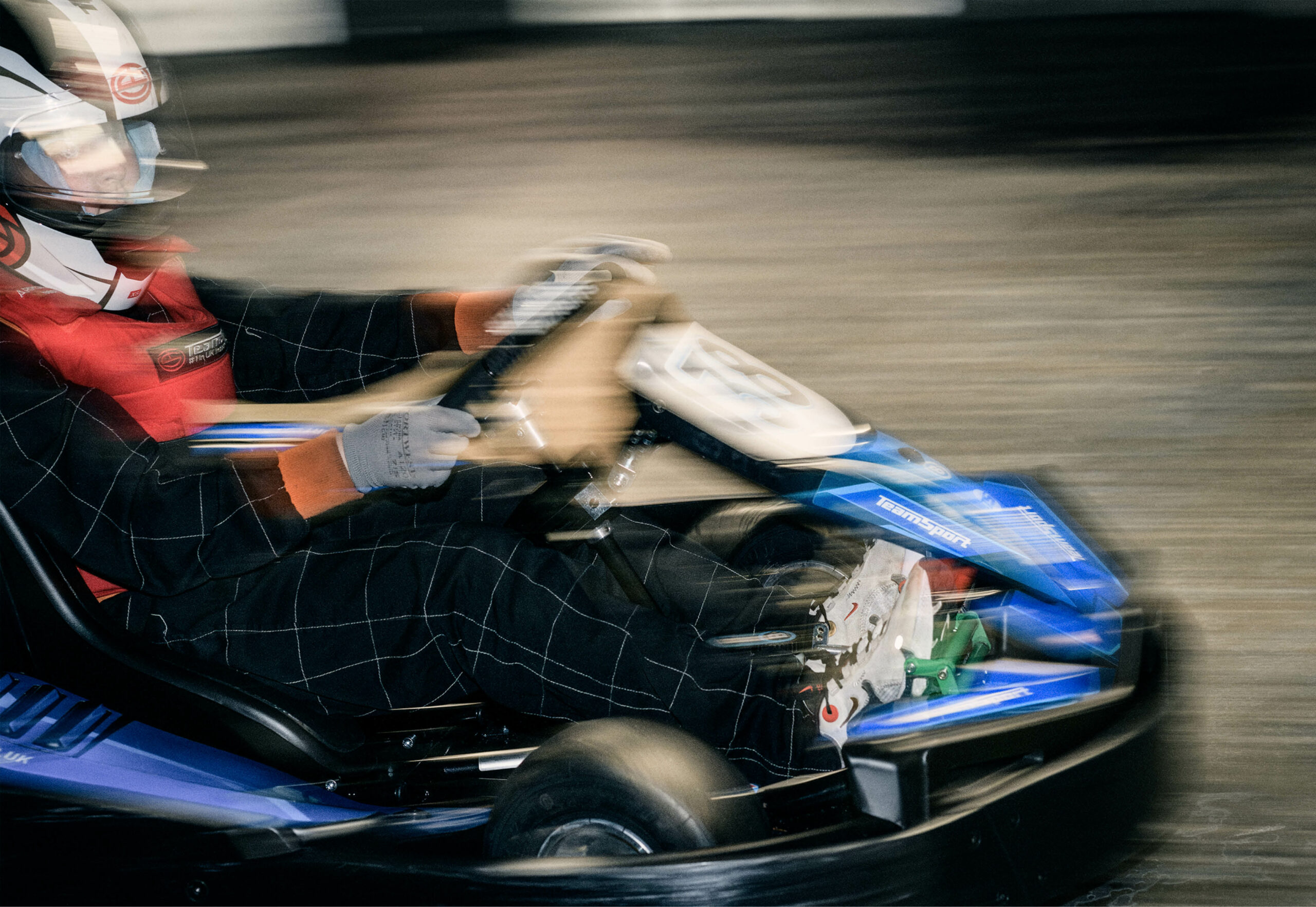
Editorial Design This is Root
Photography by Karen Yeomans
